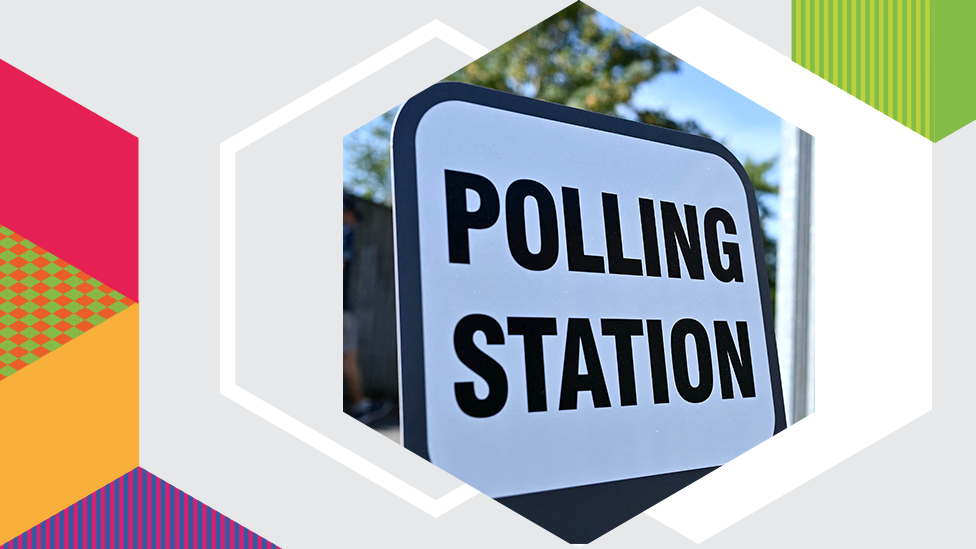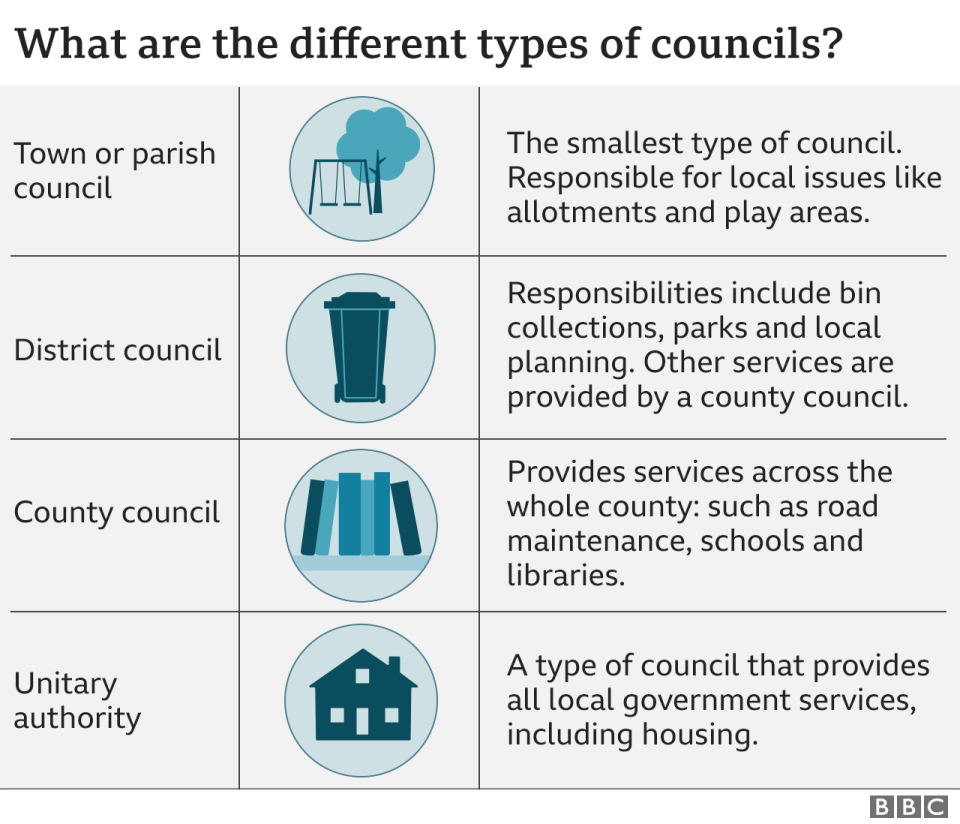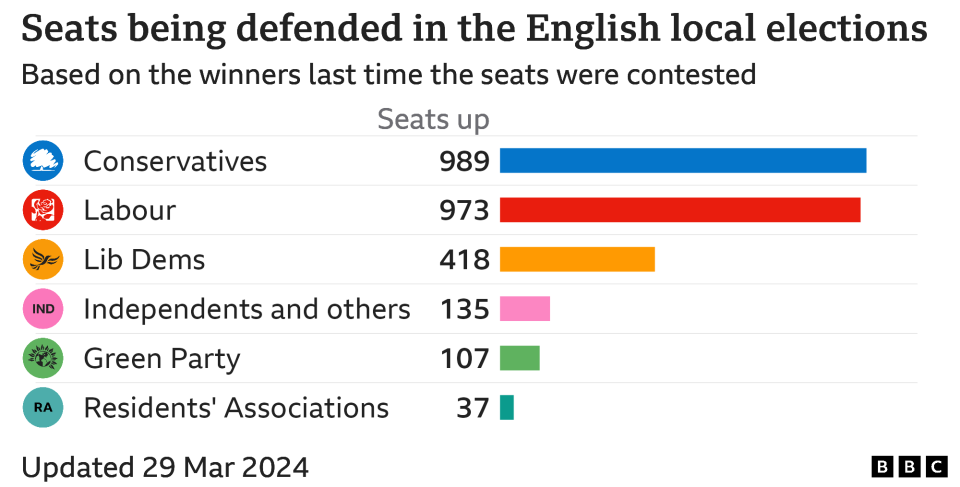Local elections 2024: When and where are they, and who can vote?

Voters in parts of England will elect councillors and mayors on Thursday 2 May.
Police and crime commissioners will also be chosen across England and Wales.
These are the last local elections before the next general election.
Which elections are taking place on Thursday 2 May?
Elections are taking place in 107 local authorities across England.
Voters will also choose the Mayor of London, London Assembly members and 10 mayors outside the capital.
A by-election will select the new MP for Blackpool South, after the resignation of former Conservative MP Scott Benton.
In addition, voters across in England and Wales will elect 37 police and crime commissioners (PCCs).
No elections are taking place in Scotland or Northern Ireland.
Click here to see the BBC interactive
How can I vote in the May elections?
There are three ways to vote if you are already registered:
in person at your local polling station
by postal vote (if already arranged)
by nominating a proxy - someone to vote on your behalf (if already arranged)
Voters must be:
aged 18 or over
registered at an address in the area where they want to vote
a British citizen, an Irish or EU citizen or eligible Commonwealth citizen
not legally excluded from voting
Voters in some areas will have several ballot papers, for the different elections taking place.
In council elections, voters generally have one vote for each available seat in an election area - known as a ward or division. However, some large wards have several seats.
As in a general election, whoever receives the most votes wins.
For the first time, mayors and police and crime commissioners will also be elected under the first-past-the-post system.
What are the deadlines to register to vote or to request a postal or proxy vote?
The deadlines to register to vote in the May elections in England and Wales, or to request a postal or proxy vote, have passed.
However, you can still request an emergency proxy vote if last-minute work commitments or a medical emergency mean you can no longer vote in person on the day.
You can do this up to 17:00 BST on polling day, Thursday 2 May.
If you use a postal vote it must be with your local council by 22:00 on polling day.
You can return your ballot papers by post in advance or hand them into a polling station or your local council on the day before the deadline.
Will I need ID to vote?
Voters will need to show photo ID in order to vote in person. You do not need your polling card.
There are 22 acceptable forms of ID, including passports and driving licences. You can use ID which has expired as long as you still look like the photo.
Anyone registered to vote without the correct ID - or who no longer looks like their photo - can apply for a free document known as a Voter Authority Certificate. It is too late to get one to use in the May elections.
What do local councils do and why do local elections matter?
Local councils are responsible for many public services, including:
providing care for the elderly and disabled
fixing potholes on some roads
collecting rubbish

What happened last time elections were held in these council areas?
Most of these council seats were last contested in May 2021, after the 2020 elections were postponed because of the pandemic.
Voting took place alongside other elections which were already scheduled.

The Conservatives made significant gains and ended 235 seats up, with Labour 327 seats down.
On the same day, the Tories took Hartlepool from Labour in a parliamentary by-election.
What do mayors do and where are mayoral elections taking place?
The London Mayor represents the 8.9 million people living across the city and has a budget of £20.4bn.
The mayor is responsible for Transport for London (TfL) and has some control over roads, policing and housing in the capital.
Outside London, mayoral elections are also taking place in nine "metro" areas across England.
The West Midlands, Greater Manchester, Liverpool City, South Yorkshire, West Yorkshire and Tees Valley already have mayors.
For the first time, mayors will also be chosen in the East Midlands, the North East, and York and North Yorkshire.
Metro mayors set out plans to boost their local economy, and have some powers over housing and transport.
If you include the London mayor, they control about £25bn, covering 44% of the population in England.
Voters will also choose the mayor of Salford, the directly-elected leader of the city council.
What do police and crime commissioners do?
Elections for 37 PCCs are taking place across England and Wales - although not in London, Greater Manchester, West Yorkshire, South Yorkshire and York and North Yorkshire where the mayor performs this role.
PCCs were introduced in 2012 to replace police authorities. They were intended to make police forces more accountable and responsive to their local community.
They help ensure that police forces function effectively, but do not directly run them. PCCs appoint chief constables and can dismiss them, if required.
Some PCCs also oversee local fire services.
When will the May election results be known?
Many local election results will be announced overnight into Friday 3 May, with more expected to follow throughout the day.
A few will be announced over the weekend.
Mayoral results will be declared on Friday and Saturday 4 May.
The London Assembly elections will also be declared on Saturday.


